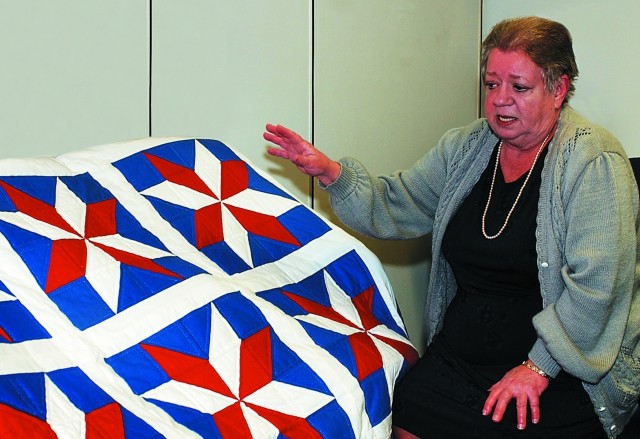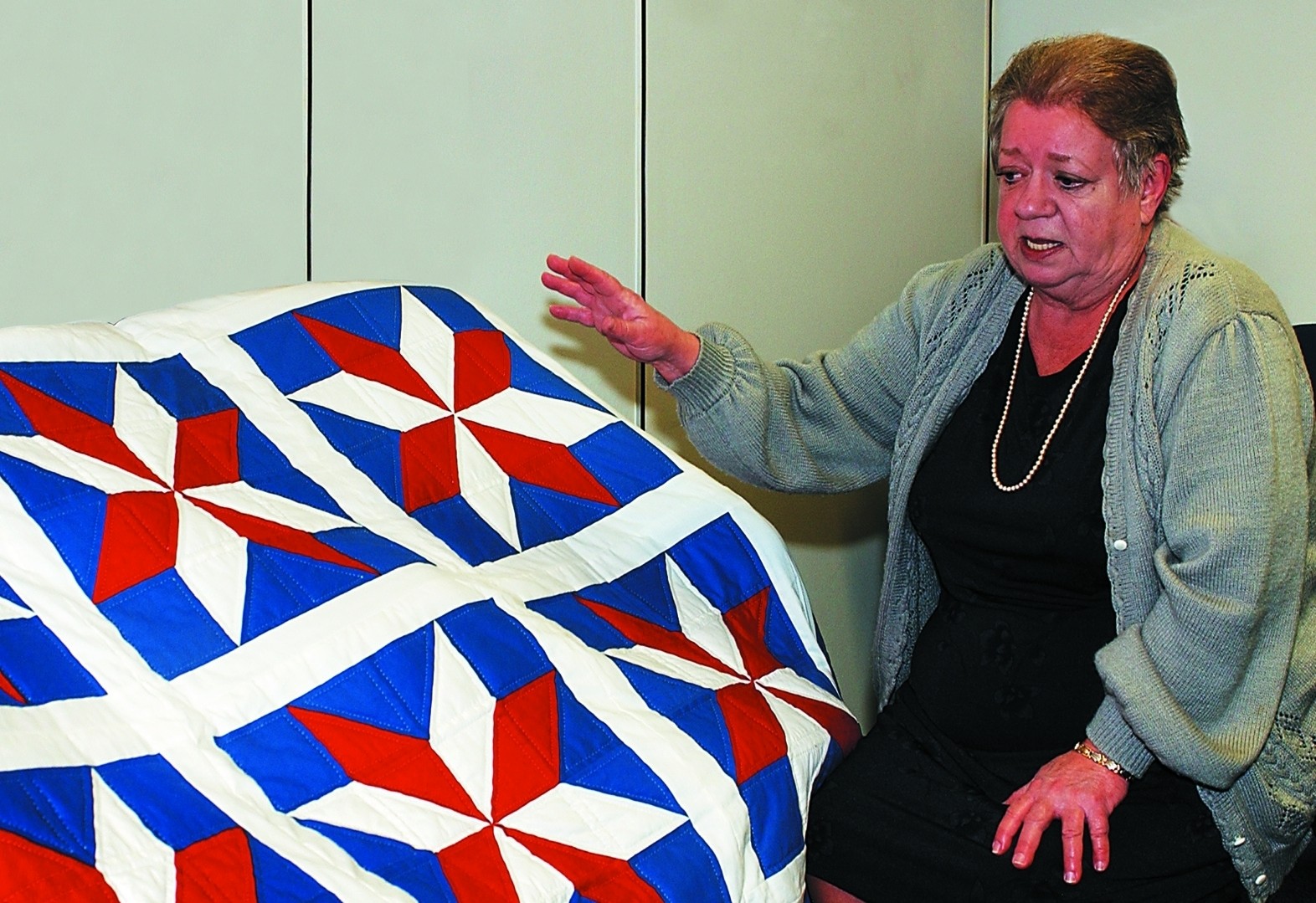Jean Wright, an Army Developmental Test Command employee at Aberdeen Proving Ground, Md., has been an enthusiastic quilt maker for about 25 years. She recently gave two of her creations to young Soldiers recuperating from amputations at Walter Reed Army Medical Center in Washington, D.C.
After learning that former DTC Command Sgt. Maj. Allen Fritzsching regularly visited wounded Soldiers at WRAMC, Wright asked him to take one of her quilts and present it to one of the Soldiers there. By the time Fritzsching was ready to make the trip, Wright had finished another painstakingly stitched quilt, so he gave that one to another Soldier.
The idea for the gifts occurred to Wright in 2006 after she met Ralph Ross, a retired master sergeant, who lost an arm because of injuries he sustained in the ill-fated U.S. military operation in Somalia in 1993.
Wright struck up a conversation with Ross at an APG store. Afterward, she realized she should have gotten the Soldier's name and phone number so she could give him a quilt. When she bumped into him again, this time at the commissary, she got his contact information and presented him with the quilt a week later.
Ross, an employee at APG's Kirk Army Health Clinic, called the gift "amazing."
"She touched my heart with that," he said. "I have that quilt on the foot of my bed. It is a quality quilt, something that would probably cost $300 or $400 if you bought it."
Wright got another opportunity to donate one of her quilts when she saw a TV broadcast featuring the sister and grandmother of Jonathon Harris, another wounded Soldier, who were interviewed about his injuries.
Wright located Harris' uncle in the York, Pa., and called him to track down his nephew.
"I explained my 'quilt mission' to the uncle, and he was happy to take it to WRAMC," Wright said. "One evening about two weeks later, Harris called from the hospital to thank me. He was scheduled to go into surgery the next morning and have more of his right leg removed, but he was in very good spirits."
Wright said she has completed about 75 quilts since taking up the hobby in the early 1980s. She spends a great deal of time gathering materials and sewing patterns together, well before she stitches them onto the batting and does the finishing work. She hand stitches everything, rather than using a sewing machine.
It's a laborious process, but something she thoroughly enjoys. Some of the patterns she creates are complex, and it can take hundreds of hours to finish a quilt, she said. Despite all that, she called quilting easy, largely because she has had so many years of practice.
"I try to piece the patterns together in the summertime, so then I've got them all lined up," Wright said. "Once I can actually start quilting, it takes about two months to complete a quilt."
She keeps track of all of her quilts by photographing them and putting the images in scrapbooks, and keeps track of who she gives them to.
"I wish I had more time, but I occasionally have to run a vacuum cleaner, cook a meal or wash clothes," she said.
"I wish there was more I could do for the Soldiers," she added. "I feel bad about some of the Soldiers who are injured, are undergoing rehabilitation and perhaps don't have any friends or family members nearby. "Those Soldiers have done so much. I think anything that anyone can do for them is very well worth it," she said.
(Mike Cast works for the U.S. Army Developmental Test Command.)


Social Sharing